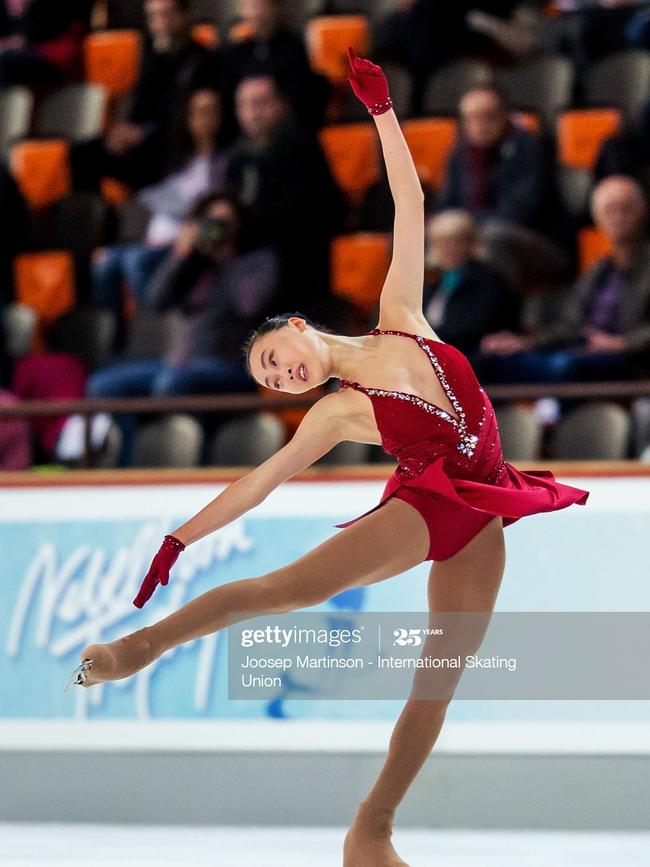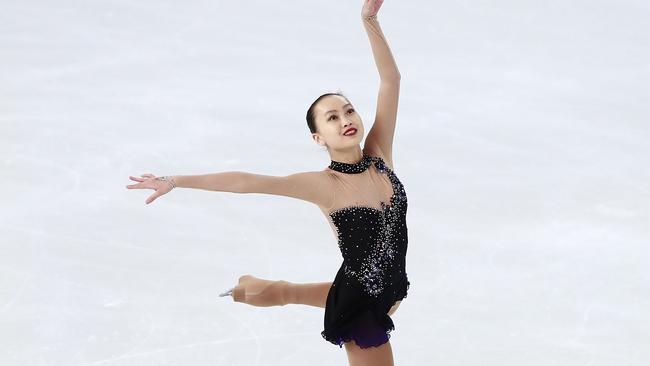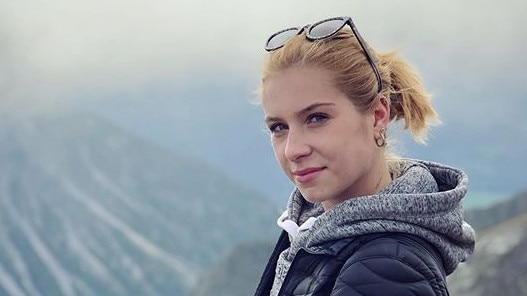The physical and emotional scars inflicted on young female ice skaters don’t disappear when they quit the sport.
Victims often suffer in silence, battling depression and eating disorders for years, or face fresh harassment if they speak out.
Inspired by the hundreds of young girls who came forward to expose the shocking extent of abuse in gymnastics, Jessica Shuran Yu chose to shine a light on figure skating’s dark secrets.
A talented Singaporean skater who was sent to China to train, she went public with chilling revelations about how she was repeatedly hit, kicked and body-shamed by her Chinese coach from the age of 11. Now retired from the sport and studying in New York, the 20-year-old spoke about the mixed feedback she has received.
She said she had been heartened by supportive messages from the public and the private exchanges with other skaters thanking her for taking a stance.
But no one from the International Skating Union has reached out to her and the response she got from China — the host of the next winter Olympics in 2022 — is deeply disturbing.
“I don’t want to make this a problem about one country because it’s a global issue, but in the country and environment I was in, it’s so normalised yet people are so aware it’s happened,” she said.
“It’s strange because it was consistently justified to me. The stuff I described in my post, the hitting, the kicking, the yelling, the insults, it happened in front of everyone yet no one batted an eye.
“Yet I think on some level they knew that it was wrong because it was never done at competitions, it was never done when we were abroad, it was never done when we were training within the United States. It was only when we were at the rink that we were at that it was done in front of everyone.
“I genuinely believe my ex-coach and anyone else who is an abuser or who supports abusers that they genuinely believe that it’s effective and it’s necessary, that they’re doing it for your own sake. It was told to me that this is for your good.
“In fact, someone who I knew from that rink, after I posted, ended up saying to me, commenting that ‘you should be grateful because that was his way of showing love’ and that’s really messed up.”

It’s the same terrifying message so many young gymnasts have disclosed after coming forward. The abuse and culture of fear that exists in gymnastics is just as widespread in figure skating.
More than 20 coaches who worked for the French ice skating federation are under investigation for alleged offences stretching back decades after champion skater Sarah Aboitbol accused her former coach of raping her.
One of America’s most decorated coaches, Richard Callaghan, has been served with a $10m lawsuit from Craig Maurizi, an Olympic hopeful who claims he was groomed for a decade of sexual abuse.
Two weeks before naturalised Australian skater Katia Alexandrovskaya fell to her death, another Russian female ice skater revealed she wanted to throw herself off a roof because the sport had left her physically and emotionally wrecked.
Betina Popova’s neck is permanently damaged, one of her fingers remains half bent because she sliced a tendon, she injured both her Achilles, smashed a knee, broke both wrists and was concussed four times in the year before she retired. But that wasn’t what pushed her to the edge; it was constantly being told by her coaches that she was fat.
“Something broke in my head back in childhood and was no longer repaired,” she said.
Body shaming is one figure skating’s worst kept secrets because no one is spared.
While male competitors are encouraged to be tall and strong so they can lift and throw their partners, females are pressured into staying small and light so they can perform more spins when they’re flung into the air. So they starve themselves. Yulia Lipnitskaya was proclaimed the sport’s new princess when she won gold at the 2014 Sochi Olympics, at age 15, performing the role of the doomed girl in the red coat from Schindler’s List. Feted by Russian President Vladimir Putin, the pressure on Lipnitskaya to stay slim was so overwhelming that she stopped eating. Three years later, she checked herself into an Israeli clinic, suffering from anorexia, and has never skated again.
Maria Sotskova competed at the 2018 PyeongChang Olympics at 17. Born three months after Alexandrovskaya, she dropped out of the sport last month, saying she was “ashamed of myself”.
“From the outside, we are successful, healthy and, I would like to note, beautiful and slender,” she wrote on her Instagram account.
“But not for ourselves, we see ourselves through the prism of what we have been instilled during our whole life — fat, lazy, incapable of anything, haven’t achieved nothing.”
Gymnastics Australia has engaged the Australian Human Rights Commission to conduct an independent review into the “culture and practices” of the sport after dozens of high-profile former gymnasts came forward alleging they were abused. There are currently no plans to investigate figure skating because local authorities say they have not received any reports alleging abuse, although sources have told The Australian and The Daily Telegraph they have witnessed young female skaters being intimidated.
It was an open secret that Alexandrovskaya had been battling alcohol dependency and had experienced blackouts and seizures, but Australian Olympic Committee chief executive Matt Carroll said authorities could only investigate complaints if they were reported.
“How do we educate athletes and others, friends and family, to be able to make a complaint or an allegation that they believe that they need to do?” Carroll said.
“That would be something that we could add to, and educating the sports administrators to ensure that that occurs and that people feel safe enough to make an allegation without feeling that they’re going to have some other measures taken against them.”
julian.linden@news.com.au jessica.halloran@news.com.au



More Coverage